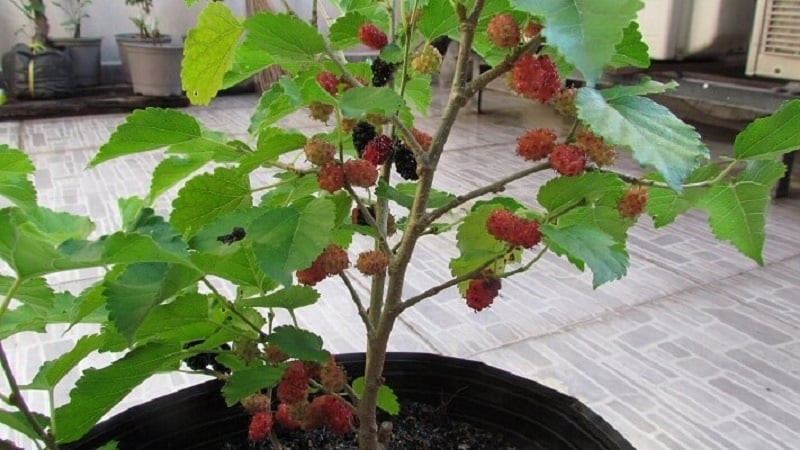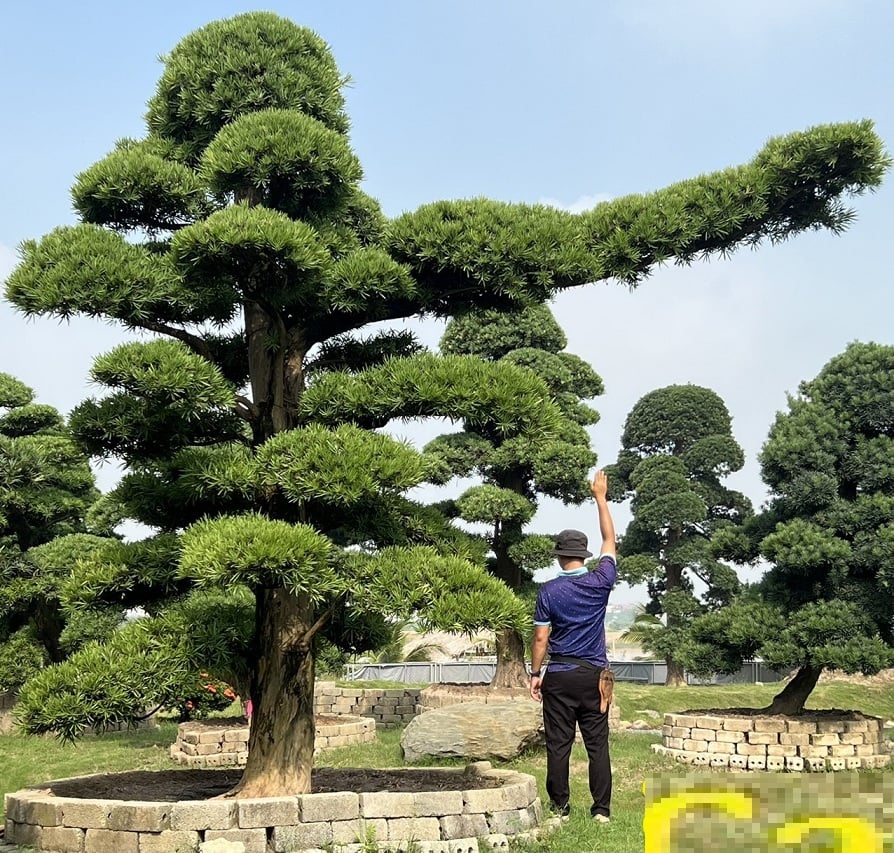Five houseplants that are believed to bring bad luck and misfortune according to ancient beliefs include: mulberry, pear, cypress, Chinese fan palm, and the money tree.

In ancient beliefs, mulberry and pear trees are not recommended to be planted indoors due to feng shui reasons.
Mulberry: Bringer of Misfortune
The mulberry tree is considered a harbinger of bad luck and tragedy for families. Legend has it that planting a mulberry tree on one’s property can invite calamity and ill fortune. As a result, many choose to plant mulberry trees away from their homes to prevent any negative impact on their family lives.
Pear: A Cause for Family Separation
Similar to the mulberry tree, the pear tree is also believed to be ill-suited for planting near one’s home. While the fruit of the pear tree may be delicious, ancient beliefs suggest that having a pear tree close by can lead to separation and discord within families.

Cypress, Chinese Fan Palm, and Money Tree: Trees Not to Plant Due to ‘Spirits’ and ‘Ghosts’
Cypress: Emblem of Nobility with a Dark Side
The cypress tree, often celebrated as a symbol of noble qualities in classical poetry, takes on a different meaning in ancient feng shui beliefs. Here, it is seen as the “most yin,” and planting one in front of your house can disrupt the balance of yin and yang, affecting the health and wealth of your household. Additionally, cypress trees tend to shed a lot of leaves, creating a hassle for maintenance.
Chinese Fan Palm: A Cemetery Tree
The Chinese fan palm is typically planted in cemeteries to ward off minor demons and negative energies. However, having one in front of your home is considered inappropriate as it evokes the atmosphere of a graveyard, which may create an uncomfortable feeling and negatively impact the feng shui of your home.
Money Tree: A Name with a ‘Ghostly’ Connotation
The money tree symbolizes “fortune” and “happiness,” but its name in Chinese includes the characters for “wood” and “ghost,” essentially meaning “ghost on the tree.” Thus, despite the beautiful and fragrant flowers it bears, many have traditionally avoided planting this tree in their yards to safeguard their family’s peace and well-being.
In ancient culture, the choice of houseplants was influenced not only by their aesthetic appeal and practical benefits but also by feng shui principles and spiritual beliefs. These beliefs explain why many people opt to avoid planting trees like the mulberry, pear, cypress, Chinese fan palm, and money tree indoors, even though some of these trees may offer financial or aesthetic advantages.
Of course, not all places follow these customs, and some may have never even heard of these sayings. Different regions have their own unique set of beliefs and traditions, contributing to the vast cultural diversity of the Chinese nation. The act of avoiding certain plants can be seen as a form of superstition, as many modern individuals grow these very trees in their homes without experiencing any marital or familial disasters.
Information provided is for reference only; please interpret cautiously!
8 Types of Feng Shui Plants That Are Perfect for People With the ‘Kim’ Element: Grow Them to Attract Wealth and Prosperity
Indoor gardening is an art that not only beautifies your home but also offers a plethora of health and spiritual benefits. The practice of cultivating indoor plants is a harmonious blend of aesthetics and functionality, as it purifies the air you breathe and invites positive energy into your living space. Like a painter’s palette, carefully selected plants that align with the homeowner’s elemental balance, or Feng Shui, can bring about a symphony of good fortune and well-being for the entire family.






































